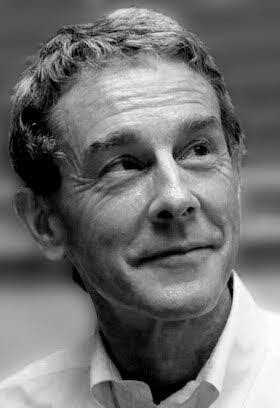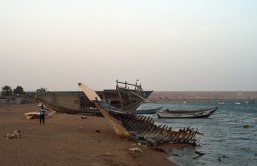
(Photo : Dharma Ocean on The Buddha: Stripped Down to Nothing)
This talk by Dr. Reggie Ray - the Director of the Dharma Ocean Foundation - was shared with the public broadcasting service in support of the film, The Buddha. The original podcast is available at Dharmaocean.org.
Like all of us, the Buddha grew up in a specific culture. One of the things about human beings is that they put labels or concepts on experience and then create mental maps out of them, assuming that the concepts and their maps are reality itself. The problem is that concepts are mental abstractions. In other words, the map is not the same as the actual territory. As the Buddha made his journey, he discovered that everything that he assumed and thought wasn't right. And in fact, even the mere fact of thinking things are a certain way isn't right. The Buddha had let go of everything in his life. He had already let go of his family and his culture. Now he had to let go of all the things that he believed about what is true.
In the end, he lost everything when he sat beneath the tree of enlightenment and realized that truly there is nothing except just the absolute nakedness of mind-no thoughts, no territory, no ground, no retreat. And in fact, there's no time. Even time is a thing that we fabricate.
He did say that this way of living was known in earlier times, but people had become so enamored of all the different ways in which you can try to pin down and control reality, trying to have references points, that it was lost. He declared that he had found the way back. Many people in his day were angry at him and felt that he was being disloyal to them, their teachers, or the past. People were very angry because what he said is there's no freedom anywhere from top to bottom of the conceptualized universe. The only freedom is when you actually step out of it altogether when you allow yourself to be stripped down to nothing. They had all their different versions of his disloyalty. Many people were outraged that he didn't go along with the caste system and that he treated people who were at the bottom of the social scale with the same amount of respect as those of higher castes.
Another thing that outraged people was that the Buddha declared that the Dharma is not for sale at any price. He lived in a world where spiritual teachings were used as bait, meaning that the teachings were bait to procure large donations. They were used as bait to establish reputations. They were bait to collect people together into social situations. He didn't go along with that. His life was threatened by other people because of this. This is not well known about the Buddha-we have this very sanitized, idealistic account of his life. If you read between the lines you see this isn't true. We have a story that he was this very pleasant person that everyone loved-kings loved him and people came out to hear him teach.
Thich Nhat Hahn's book Old Path White Clouds shows how the Buddha's renunciation of conventional norms was actually quite radical and threatening to the cultural establishment of his day. Thich Nhat Hahn did a lot of research in the Chinese Canon where there are many things preserved that we don't find in other canons. He wrote this book which seems, in a way, very contemporary. And there were many attempts to accuse him and his disciples of doing all kinds of terrible things. And you wonder, well why? The man was so gentle and so truthful, and had so much integrity, but that is exactly the problem. He was a very outrageous teacher in that way. This tradition and the Buddha's approach, have remained alive and well, down to the present.
At the same time, Buddhism has been domesticated and incorporated into human cultures throughout the world and has many different forms and levels. It's reflected in Buddhist organizations and institutionalized teachings, and in power structures and social acceptability and political powers in different countries. You see a whole complete range of these misappropriations and permutations. In this way, the Buddha's genuinely spiritual teaching is a kind of living spring that gets covered over. At the same time, the living spring that is the life of this tradition has never died out.
There've always been a few people who have kept it, and have stayed in touch with the Buddha's teachings in their purest form. And there've been other times in Buddhist history when it seemed that those teachings had died out. And then some people, men and women, wandered around in the jungle somewhere and re-discovered them and brought them back to us.
About Dharma Ocean
Dharma Ocean is a global educational foundation in the lineage of Chögyam Trungpa Rinpoche, focusing on somatic meditation as the way to help students - of any secular or religious discipline, who are genuinely pursuing their spiritual awakening. Dharma Ocean provides online courses, study resources, guided meditation practice, and residential retreats at Blazing Mountain Retreat Center in Crestone, Colorado.
* This is a contributed article and this content does not necessarily represent the views of hngn.com








